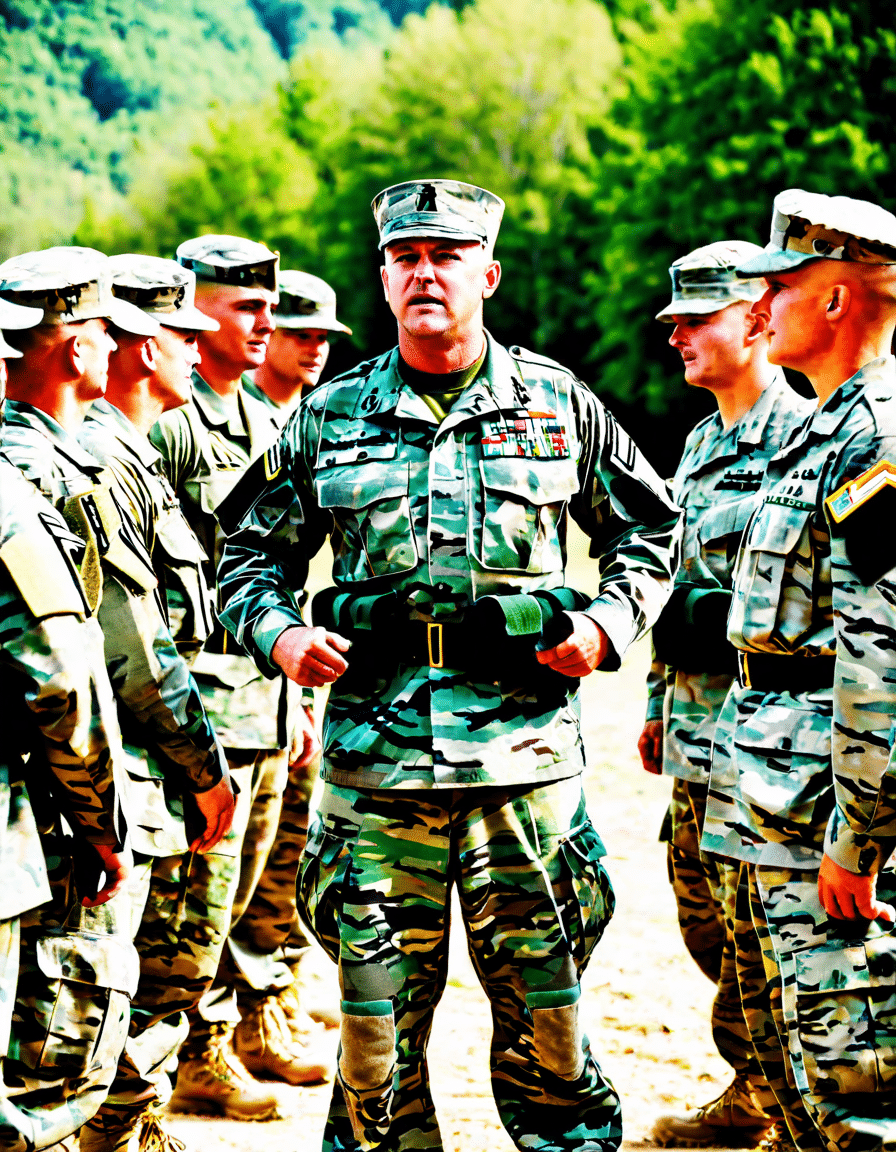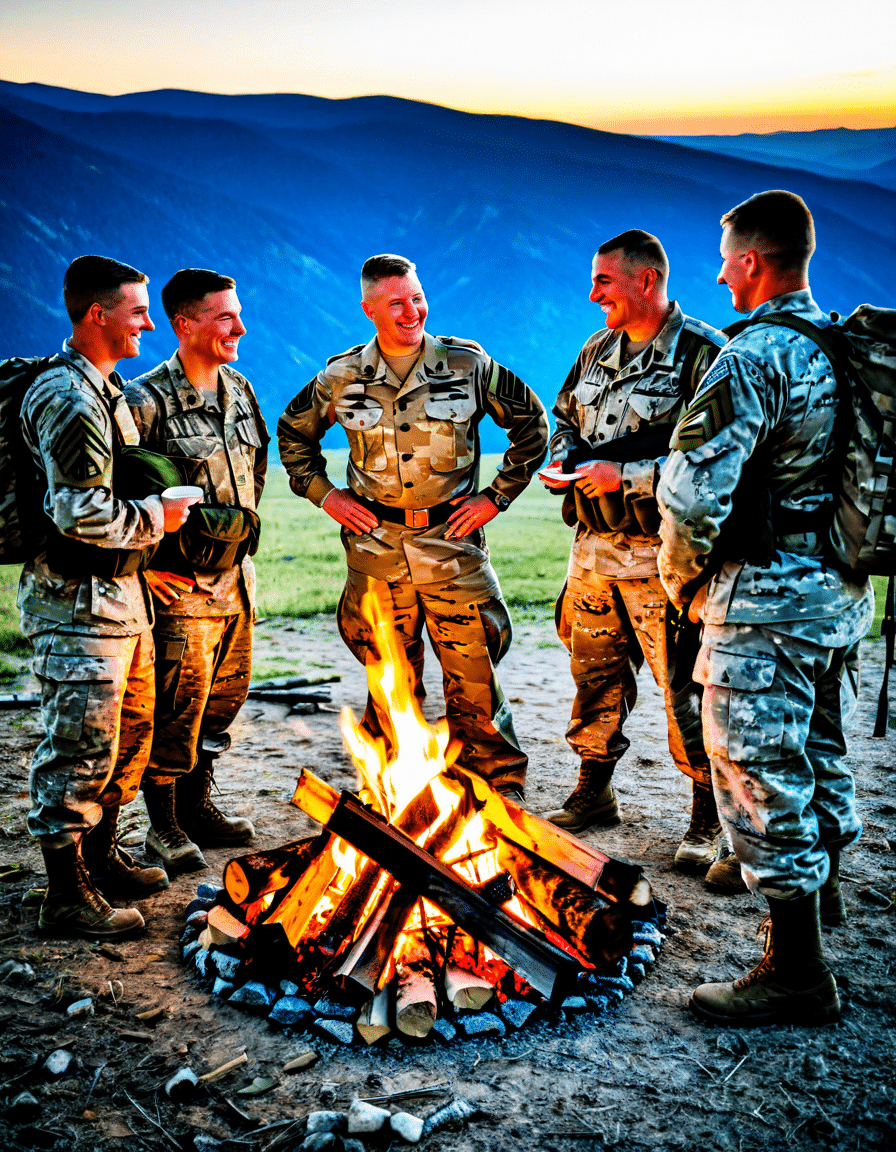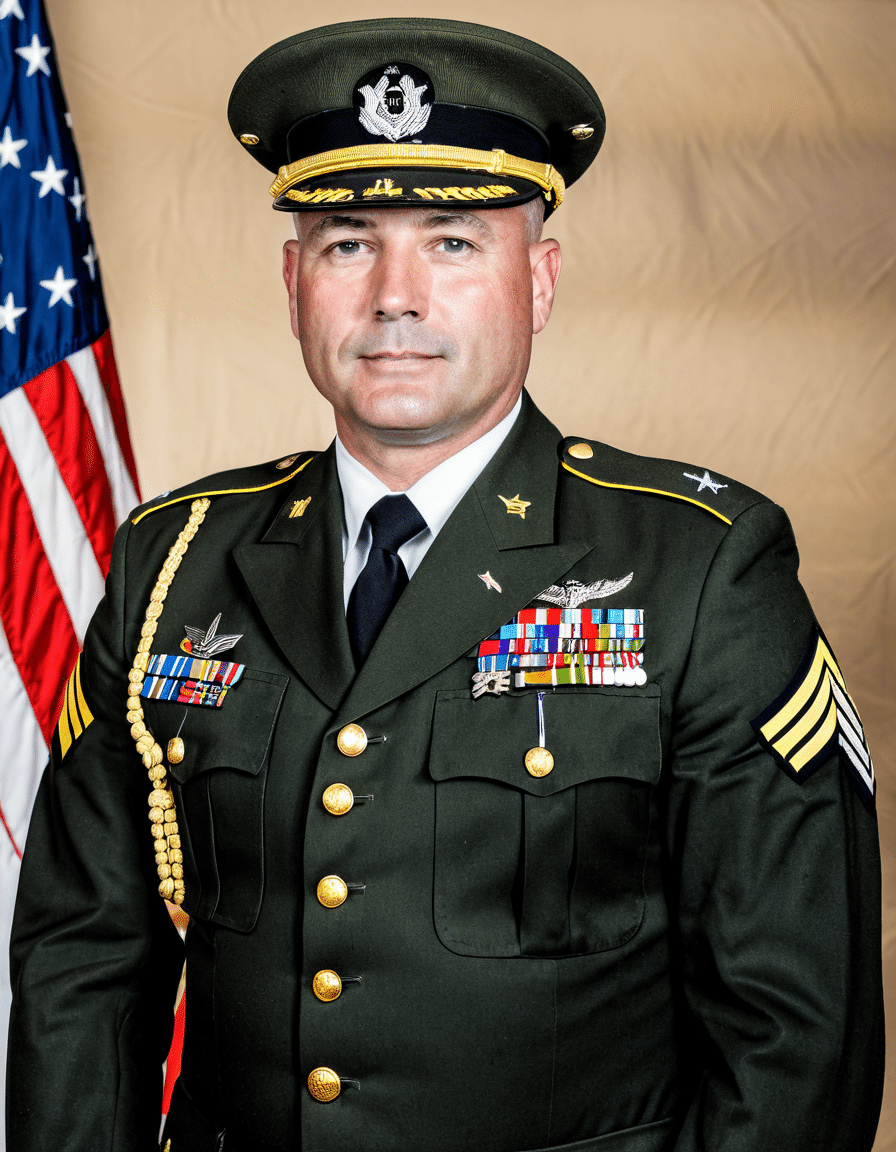The Role of the Sergeant Major in Today’s Military Landscape
The sergeant major stands as a cornerstone of leadership within today’s military. As the senior enlisted advisor, this role is vital for bridging the gap between enlisted service members and higher command. A sergeant major is not just there to enforce orders — they inspire troops and advocate for their needs, often playing a key role in shaping unit dynamics. Their extensive experience and leadership skills form the bedrock of troop morale and cohesion.
By facilitating an environment of mutual respect, sergeant majors impact the emotional health of soldiers. For instance, Sergeant Major Thomas P. McGowan shines in this regard, prioritizing mental health initiatives within his battalion. His empathetic approach has led to a significant boost in resilience and camaraderie among those under his command, directly improving performance and unit spirit.
Another key figure, Command Sergeant Major Daniel Dailey, has established transparent communication channels. His open-door policy means soldiers feel safe to express concerns, leading to stronger trust between ranks. This atmosphere cultivates inclusivity, where every soldier’s voice matters. When troops believe they are heard, it enhances overall morale and effectiveness.
During crises, the leadership prowess of a sergeant major becomes even more apparent. Master Sergeant William W. Stokes exemplifies this, having played a crucial role in humanitarian response operations. His ability to keep morale high while coordinating critical efforts showcases the indispensable nature of sergeant majors in complex situations.

The Evolution of the Sergeant Major Role in Modern Warfare
Over the years, the sergeant major role has undergone significant transformations, especially with respect to technological advancements and modern warfare dynamics. The modern battlefield demands adaptability, strategic thinking, and mentorship from leaders, pushing sergeant majors to evolve continuously.
Today’s sergeant majors need to grasp and utilize technology that improves operational readiness. Command Sergeant Major John Wayne Troxell has been at the forefront of this change, incorporating drone technology into training regimens. His foresight ensures that soldiers are well-equipped for contemporary combat scenarios, blending traditional tactics with cutting-edge innovations.
Mentorship has also broadened under the guidance of modern sergeants major. For example, Sergeant Major Angela Smith leads comprehensive leadership workshops that emphasize essential soft skills, such as emotional intelligence and communication. These workshops prepare younger soldiers for leadership roles, emphasizing that successful military operations require more than just tactical know-how.
Moreover, as the military aims for greater diversity, sergeant majors play a critical role in promoting inclusivity. Sergeant Major M. J. Carter’s initiatives have significantly improved representation among underrepresented groups, fostering an atmosphere that supports equality. This commitment to diversity not only benefits the individuals involved but enhances the overall morale within a unit.
The Influence of the Command Sergeant Major on Leadership Development
The influence of a command sergeant major is vital when it comes to shaping the future leaders of the military. This role focuses on mentorship and growth, ensuring that leaders at all levels are adequately prepared for the challenges ahead.
Setting high standards is pivotal in leadership. Command Sergeant Major Michael Grinston is a fine example, emphasizing accountability and integrity within his units. His commitment to these values sets a tone that resonates throughout the ranks, making clear that strong leadership is crucial for mission success.
To further that growth, numerous command sergeant majors, like Command Sergeant Major James K. Okley, have launched progressive leadership training programs. These initiatives blend traditional practices with innovative methods, bridging generational divides. The result is a cohesive leadership culture that benefits units across the board.
Additionally, command sergeant majors encourage professional development through educational opportunities and certifications. This empowers soldiers to pursue enhanced qualifications, which not only elevates individual capabilities but also strengthens the unit as a whole.

Insights Into Master Sergeants’ Unique Contributions
Master sergeants serve as the backbone of military operations, bringing specialized knowledge and tactical expertise that are critical for mission success. Their contributions seamlessly complement the vital work that sergeant majors do.
Take Master Sergeant Lisa Rodriguez, for instance. Her background in cybersecurity has proven invaluable in addressing modern warfare’s challenges. Rodriguez embodies the way master sergeants leverage their skills to fortify mission outcomes, showcasing the importance of specialized knowledge in combating today’s threats.
Team dynamics also fall under the purview of master sergeants, who often engage in team-building activities that promote unit unity. Master Sergeant Greg Johnson’s initiatives have led to improved collaboration among troops, directly impacting mission success rates. His hands-on approach underscores the need for effective team dynamics in achieving objectives.
Moreover, master sergeants frequently act as advocates for soldier welfare. They tackle pressing issues such as work-life balance and professional growth, ensuring soldiers’ voices are amplified at every level of command. This proactive stance fosters a healthier environment where soldiers feel valued and understood.
Moving Forward: The Future of Sergeant Major Leadership
As military landscapes continue to shift, the significance of effective sergeant major leadership becomes increasingly clear. The evolving challenges of global conflicts and domestic issues mean that leaders must be both resilient and adaptable.
Sergeant majors embody the ethos and spirit of the military. Their unwavering commitment to their troops positions them as essential figures in effective military leadership. They focus on mentorship, adaptability, and inclusivity to prepare soldiers for whatever challenges lie ahead.
In a time where the stakes are higher than ever, sergeant majors remain steadfast in their responsibility to shape a capable and resilient military force. Their dedication ensures that the armed forces will continue to be a formidable presence on the global stage, ready to tackle whatever comes next.
As the military looks forward, the roles of sergeant majors, command sergeant majors, and master sergeants will only grow in importance, shaping the fabric of military leadership for years to come.
The Role of Sergeant Major in Today’s Military
The Backbone of the Military
The sergeant major stands as a crucial figure in the military, often described as the backbone of the armed forces. They offer guidance and support to both troops and commanding officers, playing a vital role in fostering morale and discipline. Did you know that just like how a skilled musician plays a Gibson guitar, blending harmony and precision, a sergeant major brings together the various elements of military life with a finely tuned approach? Their leadership style is essential for maintaining order and ensuring that everyone’s on the same page.
Facing New Challenges
A sergeant major’s journey is filled with challenges. They must keep up with changing tactics and strategies, much like navigating the shifting sand dunes of Colorado. It requires adaptability and a keen understanding of the ever-evolving landscape of modern warfare. These leaders aren’t just commanding figures; they’re also mentors, helping younger soldiers grow in their roles. Interestingly, the role of a sergeant major has some parallels with the determination seen in the thrilling world of Triple Crown Races; both demand speed, strategy, and an unwavering commitment to success.
Cultural and Community Connections
Aside from their responsibilities in the field, sergeant majors often engage with the broader community, fostering relationships that extend beyond the barracks. Their presence at various events, like the lively performances of drag queens or community fundraisers, shows their multifaceted character. These leaders tend to embody the spirit of diversity and resilience, much like the cinematic journey of characters in the film, Sucker Punch, who face overwhelming odds with courage and determination. In pop culture, figures like Walker Scobell have portrayed these strong individuals, showcasing the importance of leadership and bravery at every level.
As we celebrate the dedication of sergeant majors, let’s also pay tribute to others like Madison Scott, a shining example of commitment and hard work in her field. Whether on screen or in real life, these leaders and role models exemplify the values we hold dear. Each sergeant major, like a guiding light, helps sculpt a community that thrives on leadership, discipline, and camaraderie.




